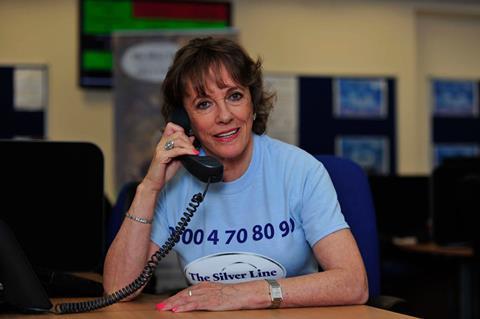Journalist and campaigner Esther Rantzen has launched a nationwide helpline for elderly people who struggle with loneliness. Before speaking at the Elderly Client Care Conference last month, she discussed with PS how private client solicitors can play their part too.

“The biggest problem people bring to us is loneliness,” remarks Esther Rantzen, former ‘That’s Life’ presenter and founder of ChildLine.
She is speaking almost a year since The Silver Line, a 24/7, confidential support and advice helpline for elderly people, was launched nationwide following a trial in the north-west. Since November 2013, it has received over 230,000 calls.
“Loneliness is all about loss – of a partner, job, a sense, driving licence, mobility, neighbourhood,” Rantzen explains, “and the problem persists that there is a stigma attached to admitting to loneliness, which makes it all the harder for elderly people to reach out.”
The Silver Line aims to help elderly people by giving them someone to speak to 24 hours a day. “One caller said: ‘I’m not bad enough for the Samaritans, and I can’t ring my daughter as it’s 3am, but I do need to speak to someone about the way I feel,’” says Rantzen. “Her husband was lying beside her, but he has dementia. That is what we are here for – we allow people time to talk. That conversation can be crucial in rebuilding self-esteem. Loneliness can erode self-confidence: you think you’re alone because nobody wants you.”
A survey of 100 callers to The Silver Line found that over half said they had no one else to speak to other than the helpline. Nearly half of callers often spent more than a day without talking to anyone, and more than one in 10 often spent more than a week without having a conversation.
While Silver Line provides information and signposting to local services and support groups – everything from benefits and winter fuel grants to the nearest salsa dancing class, says Rantzen – it also works like ChildLine by giving support and advice to those suffering neglect or abuse. The Silver Line also provides a telephone befriending service using specially trained volunteers who organise calls once a week with an elderly person.
“We work on the principle that our volunteers are not experts,” Rantzen explains. If someone needs specialist advice, they are linked to the relevant body. “So from a legal perspective, if a caller tells us that they are considering changing their will, for example, we would suggest that they go to Citizens’ Advice, or seek a lawyer that they might have heard of or worked with before. We wouldn’t specify the exact legal steps needed to change a will, nor signpost specific law firms.”
Rantzen stresses that volunteers are carefully trained to recognise potentially more significant problems callers may have. If a caller discloses abuse of some kind, everything is kept confidential (all calls are recorded) unless they give The Silver Line permission to escalate the matter. But all reports of abuse are handed to Action on Elder Abuse (AEA), and there are monthly meetings to discuss all reported cases and what action if any was taken.
Rantzen feels that solicitors play a key role in the life of their elderly clients, and can be at the frontline of promoting The Silver Line. “Elderly clients see solicitors as a trusted friend, someone they can ask advice from,” she says. “In this respect, please champion us – they won’t necessarily take any notice via a leaflet through the door; they need the endorsement from someone they trust. It could be that your elderly client comes to you just for the opportunity of having someone they know and like to talk to. If that is the case, all I would ask is that you mention that they might like to try The Silver Line and see what they think.”
The biggest challenge now, says Rantzen, is handling the huge volume of calls The Silver Line has received over the past year. There are currently over 900 Silver Line ‘friends’, but there is a waiting list of 1,000 older people wanting to be matched with a volunteer. “If you think you can spare an hour a week, please get in touch with us,” she asks. “We are a new charity, and in some ways that’s a disadvantage, because people may wonder whether The Silver Line will still be around in 20 years’ time. We have established there is a real need for this service, and it’s not going to go away as the population gets older and we live longer. That need for human contact is always going to exist.”





